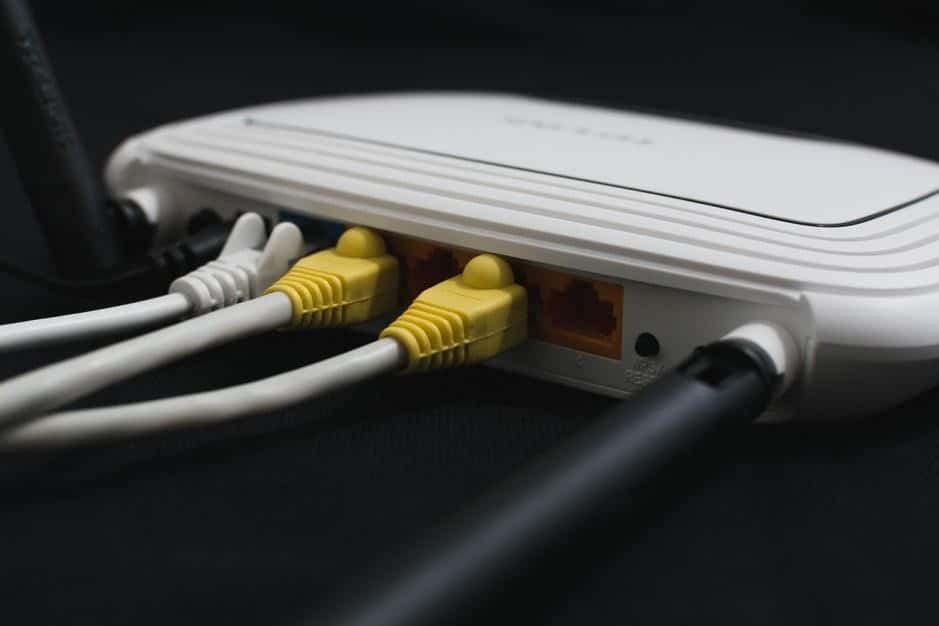When you purchase through links on our site, we may earn an affiliate commission. Here’s how it works.
How Does a WiFi Router Work? – Overview
If you are reading this article, you are likely using a router at some point.
If you accessed this website on your laptop, PC, or smartphone, you probably use a Wi-Fi router to stay connected.
To learn more about what a WiFi router is, how a WiFi router works, the difference between routers and modems, and tips to buy the best WiFi router, you should read on.
What is a WiFi router?
A router connects your internet-enabled devices to the web. As its name suggests, it is designed to “route” the communication between your devices and the internet.
A good-quality router is essential for enjoying fast and uninterrupted internet connectivity. It also assures maximum cyber security for your online communications and avoids frustrating WiFi dead spots.
Routers come in various makes and models. Experts recommend buying a WiFi router according to your specific requirements. For instance, a router for an office will have different specifications than one for personal use at home.
For seamless and swift internet connectivity, buying WiFi routers from renowned brands online is highly recommended. This will ensure high-speed internet connectivity throughout the premises.
How Does a WiFi router work?
A typical home today has several internet-enabled devices, such as smartphones, tablets, laptops, desktop PCs, printers, smart TVs, and even smart appliances.
A router helps connect these devices to a private network. It regulates the flow of incoming and outgoing data from the network fastest and most effectively.
Multiple devices are connected to the internet via the router, and each is used almost constantly.
The devices connected to a network by your router tend to use different bandwidths. A router helps to allocate the appropriate bandwidth according to the requirement. Thus, it ensures smooth and streamlined connectivity to multiple devices.
Hence, a router is handy for watching movies online, live-streaming the feed from the baby cam, and using WiFi to connect your smartphones to the internet simultaneously.
In simple words, routers connect your devices to the internet quickly and uninterruptedly.
As newer, more innovative gadgets are launched daily, the demand for smooth, swift internet connectivity at home and work is increasing. A high-quality router from a renowned brand is crucial to ensure this.
Are there different types of WiFi routers?
Yes, there are mainly two types of WiFi routers:
Wireless routers—A wireless router connects to the modem directly with a cable. This way, the router receives and directs incoming and outgoing internet traffic on the local network. The router has built-in antennas that communicate with internet-enabled devices connected to your home network using Wi-Fi technology.
Wired routers—A wired router uses wires to connect directly to your computers. It has a port to connect the wire from the modem, which allows internet connectivity to your router. Another port, or series of ports, allows the wired router to connect the computer and other internet-enabled devices to the internet. It also allows the different devices on the local home network to communicate and share files.

Are there different types of WiFi routers
Are routers different from modems?
A modem is an integral part of your home network. The modem, router and internet-enabled devices are essential for internet connectivity. The modem connects your devices (through the router) to the internet.
The modem is the connectivity gateway between you and your internet service provider.
Modems regulate the flow of incoming and outgoing data between the internet-enabled devices and your service provider.
In simple terms, the router connects your computers, smartphones, and other smart devices to the Internet through the modem.
How to choose the best WiFi router?
The main factor in choosing the right WiFi router is compatibility with your internet service provider.
Therefore, it is highly recommended that you contact your ISP and ask about the type of router you should buy.
As most ISPs use fiber or DSL to provide internet connectivity, it only requires conversion by a modem. So, you might be able to buy a modem with a built-in router.
However, many ISPs have started offering modems with built-in routers, so you should check with your provider.
Overall, routers are available in varying models and sizes. So, you must consider your specific requirements before choosing the router/modem for your home network.
Conclusion
Routers are crucial for connecting devices to the Internet and forming a local network where files can be shared among different devices.
We strongly advise that you contact your internet service provider and learn the technical specifications first to decide on the best router for your needs.
See Also